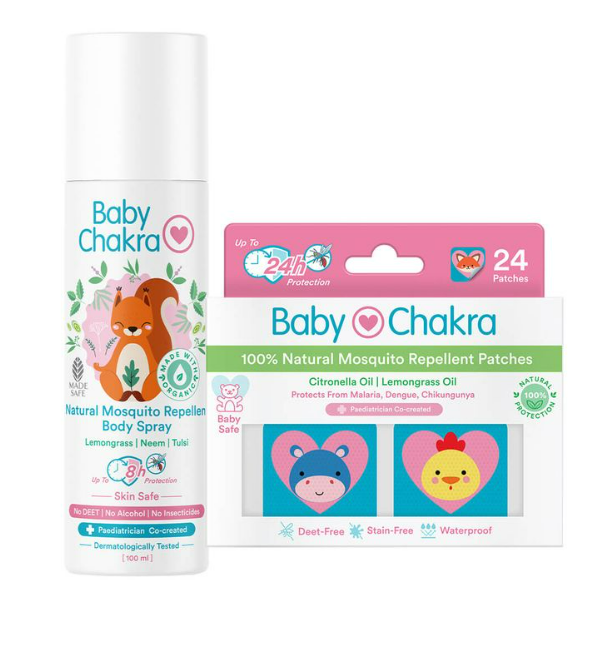
Adenovirus Symptoms In Kids: How Can You Prevent It?
2 Mar 2023 | 5 min Read
Manisha Pradhan
Author | 1053 Articles
There have been frightening reports of Adenovirus symptoms in kids and how it has been infecting them and claiming their lives in West Bengal. The question is how worried should parents be, what precautions can they take and what are the symptoms of Adenovirus.
Adenovirus is a virus that can cause a range of illnesses, including respiratory infections, conjunctivitis, and gastroenteritis. In kids, it commonly causes respiratory and gastrointestinal tract infections and mostly affects kids below five years.
The symptoms of adenovirus infections can vary depending on the type of virus and the specific illness it causes. Read on to more about the Adenovirus symptoms, causes, and prevention in kids.
What Are The Adenovirus Symptoms In Kids
The symptoms of adenovirus infections in children can vary depending on the type of virus and the specific illness it causes. However, some common symptoms of adenovirus infections include:
Respiratory Symptoms
Adenovirus can cause a variety of respiratory illnesses, including colds, bronchitis, and pneumonia. Symptoms may include:
- Cough
- Congestion
- sore throat
- Fever
- Difficulty breathing
Conjunctivitis
Adenovirus can cause conjunctivitis or pink eye in children. Symptoms may include:
- Redness
- Itchiness
- Watering
- Discharge from the eye
Gastrointestinal Symptoms
Adenovirus may sometimes cause inflammation of the stomach and intestines which causes gastroenteritis. Symptoms may include:
- Nausea,
- Vomiting
- Diarrhoea
- Stomach pain
Other Symptoms Adenoviruses can also cause other illnesses, including meningitis, encephalitis, and urinary tract infections.
Causes Of Adenovirus
Adenovirus is spread from person to person through close contacts, such as:
- Touching or shaking hands
- Coughing or sneezing
- Sharing contaminated objects or surfaces
- Through faecal matter, such as when people do not wash their hands properly after using the bathroom.
Children under five years are particularly vulnerable to adenovirus infections because their immunity is low and have not yet developed immunity to the viruses. Additionally, children who attend daycare or school are at a higher risk of getting adenovirus infections because of close contact with other children.
Prevention Of Adenovirus
There are several steps that parents can take to help prevent adenovirus infections in children:
Wash Hands
Encourage children to wash their hands regularly with soap and water, especially after using the bathroom, before eating, after blowing their nose, coughing, or sneezing and after they come from playing outdoors. Make sure your child uses a natural foaming handwash to avoid health risks caused by chemical-based hand washes.
Cover Mouth and Nose
Teach children to cover their mouth and nose with a tissue or their elbow when coughing or sneezing to prevent the spread of Adenovirus.
Avoid Sharing Objects
Encourage children to avoid sharing objects like cups, utensils, and toys that could be contaminated with Adenovirus.
Stay Home
If your child is sick, keep them indoors at home until they recover, to prevent the Adenovirus from spreading to other children.
Clean and Disinfect
Clean and disinfect frequently touched objects and surfaces, such as doorknobs, light switches, books, and toys, to prevent the spread of Adenovirus. Choose a natural surface cleaner as chemical cleaners can be harmful to children’s health.
In addition to these prevention measures, it is also important to encourage healthy habits, such as getting enough sleep, eating a balanced diet, and staying physically active, to help boost your child’s immunity and reduce the risk of Adenovirus infections.
Treatment Of Adenovirus
There is no specific treatment for Adenovirus infections, and in most cases, the virus will run its course without complications. However, there are several steps that parents can take to help relieve the symptoms of adenovirus infections in children:
How Can I Relieve Adenovirus Symptoms In Kids?
Rest
Make sure your child gets enough rest and give them plenty of fluids to help support their immune system and reduce symptoms.
Over-the-counter Medications
Over-the-counter medications, such as acetaminophen or ibuprofen, can help reduce fever and relieve pain. However, it is important to talk to your child’s doctor before giving them any medication.
Eye Drops
For pink eye caused by Adenovirus, your doctor may prescribe eye drops to help relieve symptoms.
Hospitalisation
In severe cases, such as when pneumonia or other complications caused by Adenovirus, hospitalisation may be necessary.
How is an Adenovirus Infection diagnosed?
Your child’s doctor may ask you for your child’s medical history besides physical examination and tests for adenovirus that may include:
- Blood test
- Nasal swab
- Stool test
- Chest X-ray
Adenovirus infections are common in children and most of the infections are mild and may only require care to help relieve symptoms. While there is no specific treatment for Adenovirus infections, parents can take steps to relieve the symptoms of adenovirus infections, such as rest, over-the-counter medications, eye drops, and hospitalisation in severe cases.
You may want to check out some natural products that you can use to keep infections and diseases away
Also Read:
10 Tips For Every Mom-To-Be To Safely Prepare Food: Use these tips to keep stomach infections away.
Bird Flu Symptoms In Kids: What are the causes and how to prevent it.
Cover Image source: Freepik
A


Suggestions offered by doctors on BabyChakra are of advisory nature i.e., for educational and informational purposes only. Content posted on, created for, or compiled by BabyChakra is not intended or designed to replace your doctor's independent judgment about any symptom, condition, or the appropriateness or risks of a procedure or treatment for a given person.




